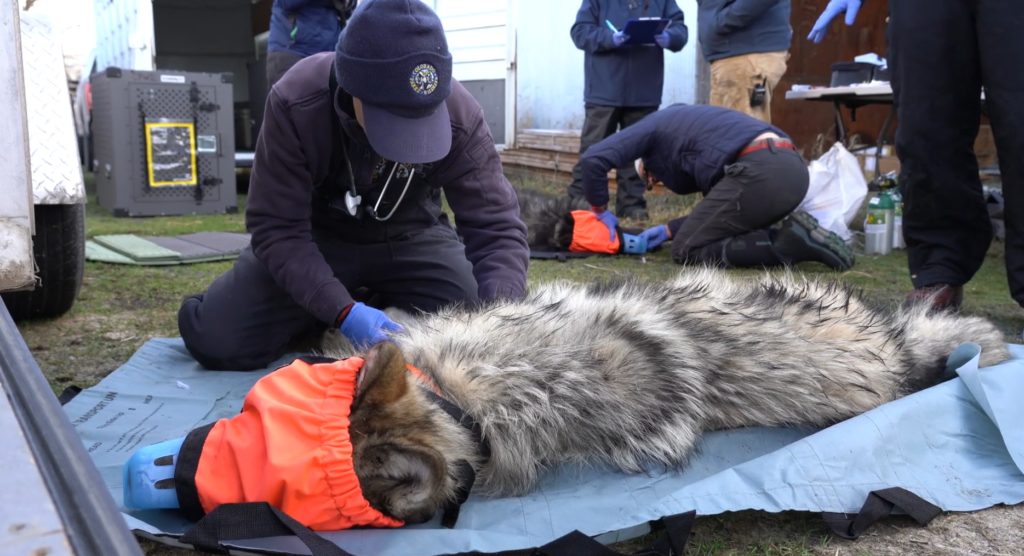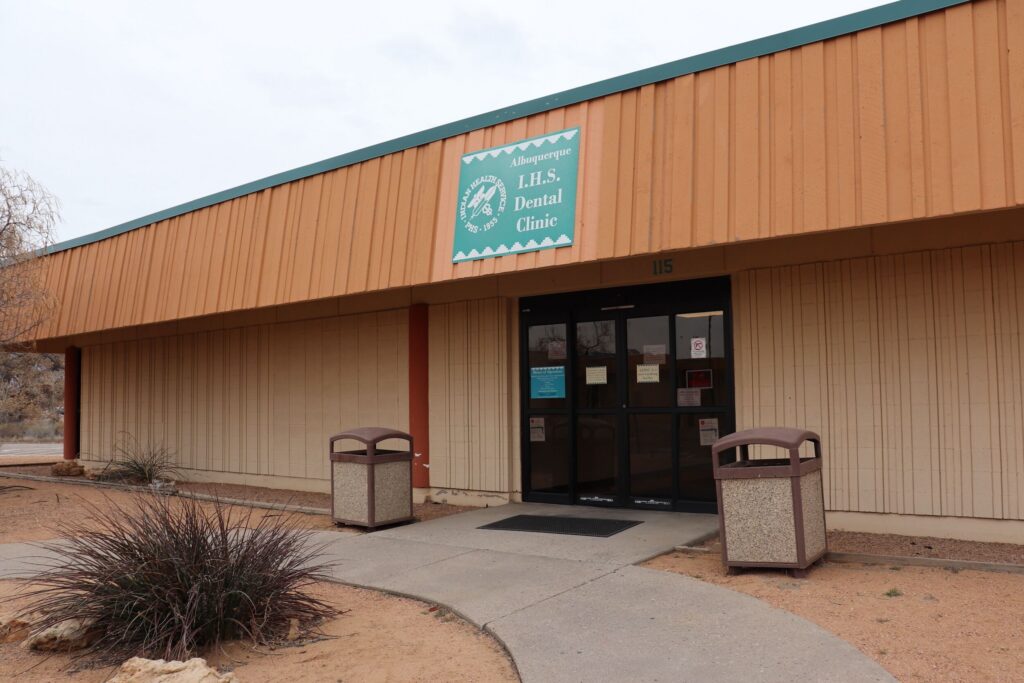New report: Colorado remains in mental health crisis

For two years in a row, Colorado has had nearly the worst rate in the nation of mental illness among children and adults, when compared with other states and the District of Columbia, according to a large-scale industry study.
Colorado ranks 50th — or second to last — for the prevalence of any mental health conditions in the 2025 State of Mental Health in America reports, the most recent version being released Wednesday.
Vincent Atchity, president and CEO at Denver-based Mental Health Colorado, one of 140 affiliates of Mental Health America, which produces the annual analysis, isn’t surprised.
Colorado has hovered near the bottom of the rankings for years in prevalence of mental problems and despite improving its standing to 14th best in the nation for access to mental health care and treatment still has a long way to go, he said.
“We’ve known we’re in a state of distress for some time,” Atchity said of Colorado. “And we’re considerably worse off than this makes us look.”
The new data lags real-time; the report released this week compiles various statistics primarily from 2022 and 2023 to arrive at its conclusions.
And numbers of historically hard-hit sectors such as the homeless and incarcerated populations are not included, Atchity points out, which means substance abuse is even higher than what’s presented.
Colorado also ranks 50th worst in the country in the new report for substance abuse of alcohol and drugs by adults.
“When we think about this data dating back to 2023, the issues remain: the anxiety and fears associated with gun violence have not gone away, our access to care has not improved dramatically enough to solve that, there’s mounting concern not just about social media but also about artificial intelligence and how that’s affecting young people in particular, and our state of persistent political division and civic enmity is a great source of distress that’s not making any of us feel well,” Atchity said.
When combining prevalence of mental problems and access to treatment, Colorado remains in the 10 worst states for mental health overall, coming in 41st on this year’s list.
Advances being made
During the pandemic, mental health of children and adults took a sharp nosedive, as society experienced unprecedented restrictions for schools, businesses, churches and social gatherings in general.
Children seem to be bouncing back though. Youth mental health was the “bright spot” nationwide in the latest findings, Mary Giliberti, interim president and CEO of Mental Health America, said during a virtual media briefing earlier this week.
Depression and serious thoughts of suicide declined among teens, according to this year’s report, which tracks national trends, ranks states on 17 key measurements, and seeks to improve care, drive policy and support those struggling with mental health.
“It is better, but not good,” Giliberti said. “The message is clear: We continue to face a persistent mental health crisis in this country.”
Colorado youth also gave indications of being mentally healthier, with 13.45% of youth having “serious thoughts of suicide.” That ranked Colorado 30th best in the nation — a noticeable improvement from 2024, when Colorado ranked 43rd in the category.
There also was a bump from 56.7% in last year’s report to 60% this year for adolescents who were “flourishing” mentally.
Statewide, the suicide rate for children ages 10-18 fell last year to its lowest level since 2007, with 39 total deaths of adolescents. That’s a rate of 5.85 deaths per 100,000 youth under age 18, the Colorado Department of Public Health and Environment’s Office of Suicide Prevention announced in August.
With 87 adolescent suicide deaths statewide in 2020, Colorado hit a peak that year, at nearly 13 deaths per 100,000 youth.
Colorado Springs also saw fewer kids taking their lives last year, at a total of four. The number could be higher this year, as El Paso County hit four suicide deaths of youth in September with another quarter of the year to go, according to the El Paso County Coroner’s Office.
A persistent concern is that youth are more isolated than ever, said Whitney Hancock, owner, director and clinical therapist at Dynamic Counseling in Colorado Springs. Youth tend to reach for their phones to connect with friends over social media more than personal contact with peers.
Colorado’s rural geography also creates isolation, which leads to loneliness and “has a strong correlation to poor mental health,” she said, adding that she thinks it has become an epidemic among young and old people.
Hancock said she’d like to see more schools in Colorado offer students the ability to do online virtual counseling or therapy sessions during the school day, which is happening in some states.
For Medicaid recipients, it’s against the law to charge for therapy, and taking advantage of such benefits for qualifying families can be a lifesaver, she said.
While upcoming changes to the federal government’s Medicaid plan are “making providers nervous,” Hancock said, that shouldn’t stop families from applying for coverage and for existing recipients to use the free treatment for behavioral health care.
What’s going on?
In 2015, when the first State of Mental Health in America study was published, Colorado had the 16th lowest prevalence of behavioral health concerns — compared with now nearly being the country’s worst.
Recent data from the 988 Colorado Mental Health Line shows some of the top reasons people are seeking mental health support today are: social or interpersonal stress, work-related angst, concerns about everyday life, and national and global events.
Colorado’s high alcohol and drug use is no doubt creating adverse mental health, professionals say.
Easy access to drugs and alcohol makes misuse easier and more likely, Atchity said, noting that Utah, where much of the culture does not normalize or promote substance use, always ranks among the nation’s best in terms of abuse.
Nationwide, access to care “remains inaccessible, unaffordable and critical” to the well-being of Americans, Giliberti of Mental Health America said.
Colorado being 14th best for access doesn’t necessarily translate to what mental health care professionals experience in the field.
“What I see with calls every week is that even if individuals or parents have insurance, it is so confusing to figure out what their coverage is — it’s buried under jargon and is not clear what their benefits are,” Hancock said.
“The cost of living is already so high that if they’re choosing between gas, groceries or therapy that could cost anywhere from zero dollars to $150, I see hesitation — and that puts individuals waiting until there’s a crisis to seek help, which is more expensive.”

System reform focusing on the Colorado Behavioral Health Administration working with individual communities to improve mental health is showing progress, according to the agency that was formed by state lawmakers on July 1, 2022.
New programs include the 988 Colorado Mental Health Line, which combined the nationwide 988 phone line and the Colorado Crisis Line into one 24/7 hotline. Anyone facing any type of challenge can dial or text 988 to talk live with a specialist.
The administration also started “I Matter,” (IMatterColorado.com,) which offers up to six free therapy sessions to anyone under age 18 in Colorado. More than 17,000 kids from all 64 counties have used the program for mental health assistance since it launched it 2021, said Allie Eliot, spokeswoman for the Colorado Behavioral Health Administration.
And the administration recently started a network, Colorado LIFTS (Linking Individuals and Families to Services), which brings together previously fragmented crisis, mental health and substance use support under one umbrella, particularly for those who don’t have insurance or whose insurance won’t cover the mental health treatment needed.
Residents can call (888) 607-4462 to speak with a trained specialist or find network providers at ownpath.co.
Regional councils of providers and people who have had mental health problems contribute to developing the services needed in communities, Eliot said.
Actionable takeaways
The report concludes that 28% of Colorado’s population, or more than one in four residents, have some type of mental problem. That’s 1.26 million people.
The national prevalence is at about 23% of the population, or under one in four.
Atchity of Mental Health Colorado said this year’s actionable takeaway may look different from past years, when a large part of the solution has been to increase funding.
“Colorado is in a state of budgetary distress; it’s not like we can throw money at the problem,” he said. “We’ve got limited resources and mounting concerns.”
He thinks using a “back to basics” tactic is reasonable. “For us to know as a population that a lot of people in Colorado are not doing well and use that knowledge to heal ourselves and each other by being more attentive to the things that drive us to a worse state of ill health.”
When clinical or medication-based solutions are not available, Atchity said people should revert to a proven approach.
“What’s always been helpful in a health crisis is a little more practice of humanity,” he said. “Our muscle for that seems to be seriously depleted now.”
Assume many people you encounter over the course of a day are struggling with a mental issue and “be more attentive to the distress of others,” Atchity said. “Maybe take a path or bringing a little more grace and consideration to our interactions with others.”













